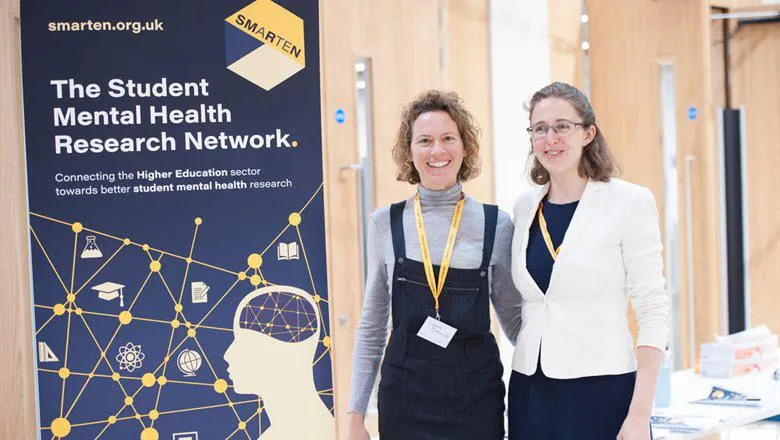This change in approach is urgently needed; the sector is reporting a mental health crisis, with increasing concern for student mental health. Provision of reactive and individual services cannot keep pace with increases in demand and has been criticised for being too individualistic and ignoring the structural and cultural processes that influence mental health.
Dr Nicola Byrom, SMaRteN Director, Institute of Psychiatry, Psychology & Neuroscience, King's College London
13 July 2020
New research projects funded to develop and evaluate interventions for student mental health
The UKRI-funded Student Mental Health Research Network (SMaRteN) led by King’s College London has awarded funding to seven research projects focused on understanding what non-clinical and universal approaches to student mental health can achieve.

SMaRteN is a national research network funded by UK Research and Innovation, led by King's College London, and based in the Institute of Psychiatry, Psychology & Neuroscience (IoPPN), focusing on student mental health in higher education. Working with researchers with a range of expertise and key stakeholders across the higher education sector, they aim to improve the understanding of student mental health.
Through the SMaRteN funding call, projects aim to begin to address the substantive gaps in the research around the non-clinical and universal approaches to student mental health. By providing a total of £77k in funding to seven small projects, the goal is to energise research in this topic.
She continues, “The UK higher education is seeing a welcome shift towards whole-institution approaches. The University Mental Health Charter encourages universities to implement a whole university settings-based approach to improving mental health and concentrates on positive health rather than the absence of disease. The aim is to create supportive environments and processes enabling all the university community to engage creatively to work towards better mental health.
“While a change in approach is needed, there are substantive gaps in the research around the non-clinical and universal approaches to student mental health. The recent review of reviews published by What Works Wellbeing noted that while there has been much research into individualistic interventions, there is a serious gap in data for more universal approaches in universities.”
Funding was prioritised for early career researchers and projects that incorporate co-creation work with students. It is being allocated to universities across the United Kingdom, including the University of East Anglia, Glasgow University, Lincoln University, Plymouth University, University College London, and Ulster University. Funding was allocated through a competitive process and all applications were reviewed and assessed by students as well as academic researchers.
These projects will allow us to consider in more detail how the higher education sector can really put ideas about the ‘whole university’ approach to student mental health into practice. This is so important if we are to reach all students, and ensure that they can thrive at university.
Dr Juliet Foster, Dean of Education (IoPPN), King's College London
Projects have been selected from a diverse range of research areas. They include work at the intersection between education, arts and humanities, Dr Georgia Walker-Churchman’s work assesses whether engaging with resources around the history of mental health can have a positive impact and Dr Thomas Kador’s study will evaluate how experiential learning spaces impact on student wellbeing.
Three of the funded projects consider peer relationships, through development of a peer support wellbeing programme (Dr Margaret McLafferty), evaluation of the impact of study groups for MSc students (Dr Jo Billings and Tayla McCloud) and exploration of how an app might help promote social connection on the university campus (Dr Sophie Homer).
Recognising the real challenges for mental health within the postgraduate research community, SMaRteN has also funded two projects focusing here; Dr Maria Gardani will assess whether additional support, training and resources for supervisors can be beneficial, and Dr Trish Jackman will evaluate a student-led induction for doctoral researchers.
Read the full details of all funded SMaRteN projects.
Further information
Dr Nicola Byrom
SMaRteN Director
Email: smarten@kcl.ac.uk
